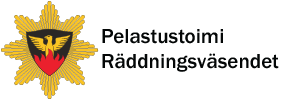

Preventing accidents
Accident prevention means actions taken to reduce the likelihood of an accident and limiting the consequences of an accident through being prepared.
Rescue departments’ core tasks related to accident prevention are guiding, advising and training people as well as supervisory tasks.
The rescue authorities supervise the safety of buildings and activities by means of fire inspections and other methods. To prevent accidents, the rescue departments work together with other regional authorities as well as local communities and residents.
Each and every one of us carries the primary responsibility for preventing fires and other accidents and for ensuring both our personal safety and that of our environment.
The Rescue Act lays down general obligations that apply to everyone. They include
- a general duty to act
- a general duty to be careful
- a duty to be careful when handling fire.
In order for rescue operations to be successful, those who notice an accident must know what to do and be able to do it before professional rescuers get to the scene. Simple measures can be taken to prevent many different types of accidents or to limit their consequences.
Everyone must comply with the safety provisions and regulations of the Rescue Act. Fire and hazardous substances must be handled with special care and caution. Hazardous situations must be prevented to avoid a fire breaking out or other accidents. In addition, every citizen has the duty to make an emergency call in a hazardous situation, warn those who are in danger, and rescue others as far as they can.
Rescue departments’ accident prevention tasks
Guidance
The rescue department guides and supports those who have a duty of preparedness in carrying out their tasks laid down in the Rescue Act. The purpose of guidance is to prevent accidents and the resulting damage and to improve public safety.
Training, advice and safety communications
The rescue department provides advice and training to people, who can then take action to prevent fires and other accidents and know what to do in an accident or a hazardous situation. In addition to training, safety communications include various campaigns, events, publications and personal advice, for example in connection with fire inspections.
Supervision
The rescue department supervises those who have a duty of preparedness laid down in the Rescue Act in its region to ensure that they fulfil their duties and perform their tasks. As part of this supervision, the rescue department carries out fire inspections and other supervisory measures. In connection with fire inspections, the rescue authorities also pay attention to preventing other accidents besides fires. Regulations or recommendations on such matters as safety arrangements or safety equipment can also be issued in connection with fire inspections.
The rescue department also has official duties under the Chemical Safety Act.
Fire investigations
The rescue department carries out fire investigations to prevent similar accidents and to limit the damage they cause.


